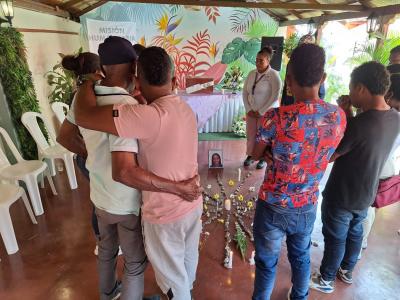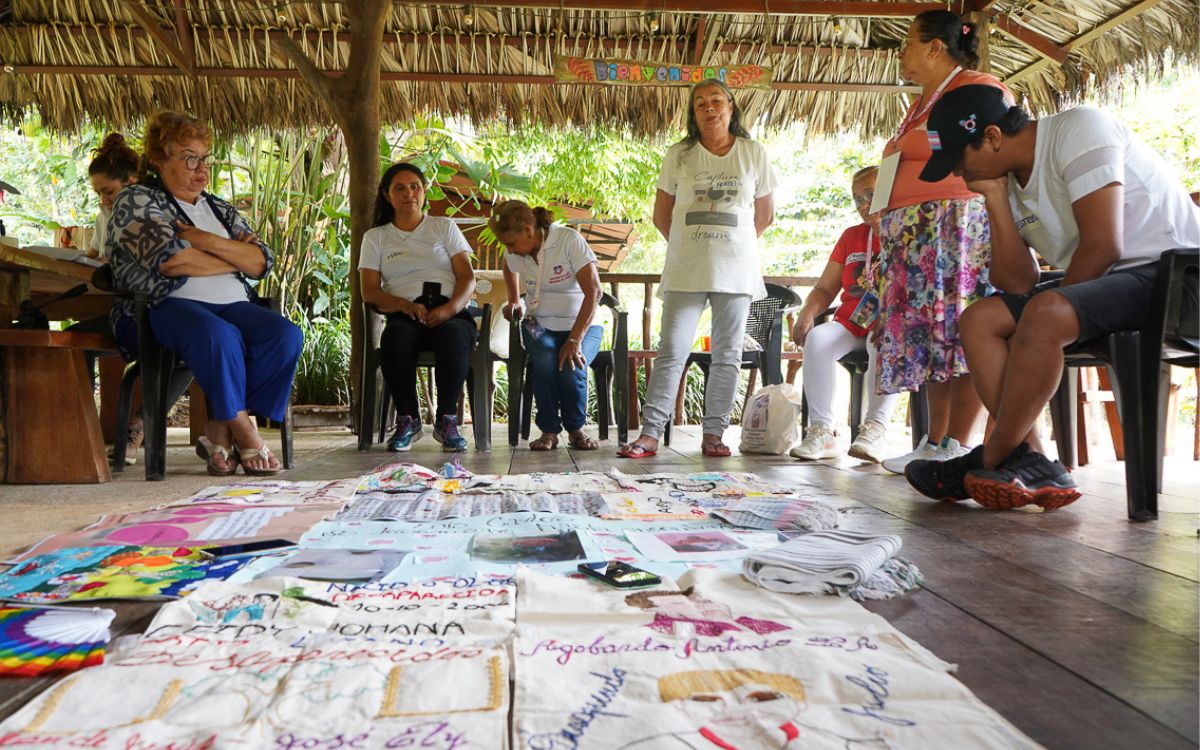Ritual Landscape: Returning the Disappeared of Colombia
The Mershon Center for International Security Studies has been working with a global forum made up of experts who are scholars, policy makers, and peace practitioners to better understand what encourages individuals and communities to transition from violence to peace. Much discussion has surrounded the limitations of formal mechanisms in transitional justice. These processes are generally top-down, technocratic, framed by political agendas, and dominated by international or national actors. Conflict-affected landscapes, however, are complex, and these timebound, narrowly focused initiatives do not necessarily lead to successful or widespread social transformation.

Colombia’s decades-long armed conflict has generated fear, suspicion remains pervasive, and the impact of trauma lingers. While legal and technocratic approaches have played a critical role in establishing institutional frameworks and accountability mechanisms, they are insufficient for addressing the affective and psychosocial dimensions of post-Agreement recovery. Especially in fragile settings, formal responses must be complemented by community-rooted practices that can reweave the social fabric. For these reasons, effective peacebuilding efforts require the integration of rational and nonrational strategies - including rituals, symbolic acts, and locally grounded ceremonies – because they can foster social well-being, open pathways to reconciliation, and enable collective healing.
The Unidad de Búsqueda de Personas Dadas por Desaparecidas (UBPD) plays a critical role in Colombia's post-agreement landscape by leading humanitarian and extrajudicial efforts to locate and identify individuals presumed disappeared during the armed conflict. Operating within the Integral System for Truth, Justice, Reparation, and Non-Repetition, UBPD seeks to alleviate the suffering of relatives, or of the ethnic groups they belong to, and to contribute to the realization of their rights to truth and reparation.

UBPD uses “differential” and “psychospiritual” approaches in their search processes. These frameworks recognize the traditional practices, ancestral knowledge, and customs of people participating in the search, such as family members and other persons close to the disappeared person. Not only do these approaches enable inclusion and empowerment, but they also respect the unique conflict related experiences and social vulnerabilities of the differing ethnic and cultural groups throughout Colombia. Incorporating these sensitivities into their efforts is fundamental to the UBPD's broader contribution to national reconciliation because it helps foster trust and healing in communities affected by decades of violence.
To better understand the interface of UBPD’s approach with various cultural and psychospiritual practices, this joint institutional research project examines the role of rituals in the search, recovery, and dignified return of Colombia’s disappeared. By focusing on ritual processes, and the beliefs, customs, and symbols that accompany these efforts, we aim to assess whether - and how - the work of “search” is contributing to reconciliation in Colombia, and the ways rituals influence social healing.
